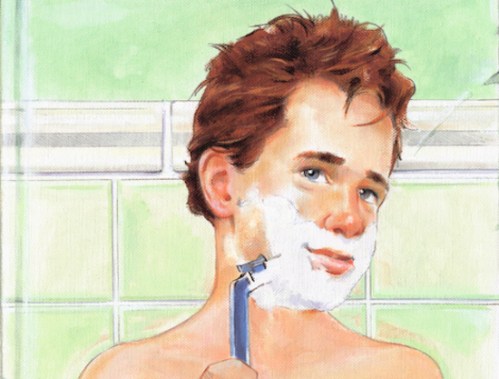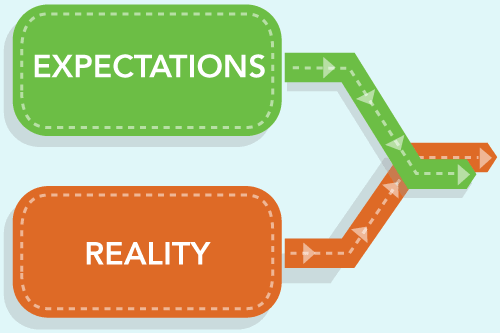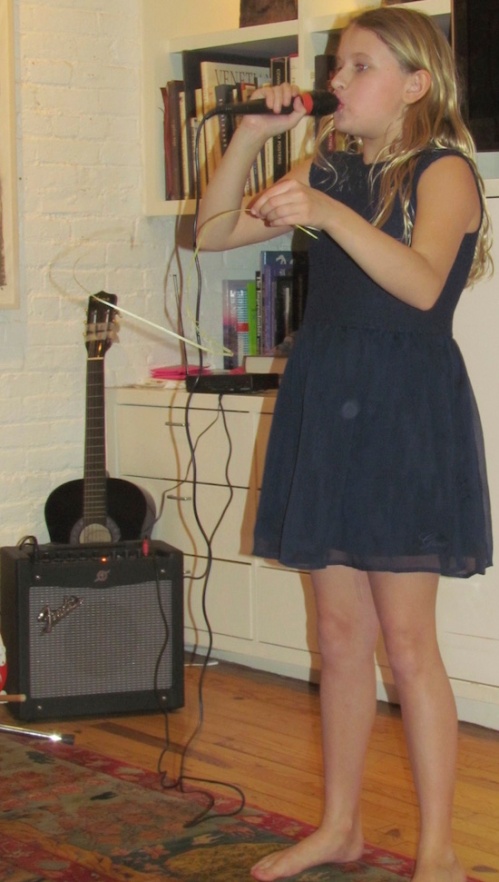“Actions taken that get responses you don’t want.”
This was what Emma typed in response to my question, what should we write about on the blog today?
Emma proposed making one blog entry a week, possibly asking for readers to answer some of her questions, but before we could continue, she had a few concerns.
“Would thinking about stressful times cause upset?” she typed.
I said that it might, but we could put a trigger warning above with the topic so that if the topic was something specific, people would be warned and could stop reading. As I said this to her I marveled at her endless compassion and concern for other people’s feelings. Then I said I believed that sometimes it can be helpful to know you aren’t alone in feeling and thinking things that you don’t necessarily know others feel and think, at least this has been my experience.
We discussed the experience of going through puberty and how adults will often talk about their children and what they believe they are going through, but not about their own experience of going through puberty. “Maybe we should ask people to share their memory of puberty and what was the most difficult part about that period of their life?” I suggested.
Emma wrote, “You can ask and please say that if this question causes stress to not answer and next week I will ask a fun question.”
“That is such a thoughtful and kind thing to say, Emma,” I told her.
Before we ask for other people to share their experiences with either of these questions, Emma and I asked Richard to talk about “actions taken that get responses you don’t want.”
Richard said, “I put work out into the world, like my book and I want people to enjoy it, but some people say all kinds of nasty things, or let’s say I wrote a blog post and my intention is to be helpful to Autistic people and advocate for them, but because I’m not Autistic and I am highly opinionated, maybe I write things that are actually offensive to the very people I’ve meant to help.”
I asked Richard if this had really happened to him or if the last part was hypothetical.
“It’s hypothetical, but I certainly am capable of doing something like that. People can do all kinds of things with good intentions that don’t get great responses. To me the question is – what if you do things that you think are going to be helpful to yourself and other people and they aren’t and they aren’t appreciated either.”
I told Emma I would write about my experience with both these questions, so beginning with the first – actions taken that get responses you don’t want.
Saying something that is taken in a way I didn’t mean, particularly if it causes upset, anger or comes across as offensive. There have been times when I’ve said something and not realized it was offensive until much later, but there have been other times when I’ve said something or asked a question and it’s been taken as meaning more than simply information gathering.
Puberty…
One of the things I really love about this question is that it’s one of those topics people don’t often talk about, at least not with any personal specifics unless it’s about someone else (often without that person’s permission) or in small groups. So here’s the trigger warning – if the topic of puberty causes you stress, stop reading, otherwise, please join in and share a memory or an experience of going through puberty. What was it like? What was most challenging? Please keep this about your own experience. If you want to remain anonymous, you can always send your comment to the blog email address: emmashopeblog@gmail.com or you can DM us on Emma’s Hope Book Facebook page.
We asked Richard to start things off: (insert smiley face here)
“It was the late sixties and early seventies and I became obsessed with – when will I have cool looking sideburns? – I remember doing drawings of sideburns and imagining what my sideburns could look like. I remember a lot of thinking about sideburns. They were emblematic of becoming a man.”
Okay, so I can’t really ask readers to share if I’m not willing to do the same, so here goes:
One of the more troubling memories I have of puberty was when I began to develop breasts and wanting to have them because most of the girls in my class already did and I was taunted by the boys at my school for not having any breasts. They would yell, “hey flatsy!” at me when they passed me in the hallway or whisper it to me during recess.
But I also hated that I was developing them. I had both feelings at once. There was shame about my body for not looking like the other girls, but also fear and shame that I would. I remember lying on my stomach at night, thinking this might limit or reduce their growth, only to put small wads of kleenex in my “training” bra to see what I would look like once I had them.
The larger issue, though I don’t think I was aware of it at the time, was the conflict of growing older and being excited by this, yet part of me wanted to stay a kid. And there was terror too. I was going to say “fear,” but it was more than fear, it was real terror at the idea of looking more adult like and less kid like, coupled with growing into a woman’s body and not liking the attention that elicited, which interestingly enough ties this answer to Emma’s first question about – “actions taken that get responses you don’t want” and very much encapsulates the essence of all that was problematic and difficult for me about puberty.
We’re turning these questions over to all of you now…
1. Actions taken that get responses you don’t want
2. Puberty – what was your experience or a memory of that time in your life?







